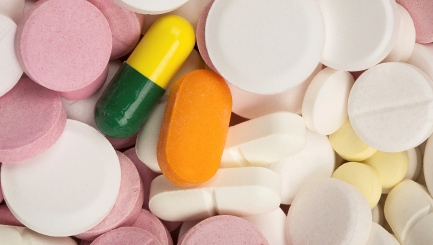Which Vitamins Do You Really Need In Your Life?
 Vitamins are organic compounds which we all need in our bodies in small amounts. The body can produce or synthesise some, but generally we get most of our vitamins from the food that we eat. When the body can’t produce a chemical compound that it needs to survive, and has to get it instead from food, it is called a vitamin.
Vitamins are organic compounds which we all need in our bodies in small amounts. The body can produce or synthesise some, but generally we get most of our vitamins from the food that we eat. When the body can’t produce a chemical compound that it needs to survive, and has to get it instead from food, it is called a vitamin.
There are some compounds that are vitamins for humans, but do not count as vitamins for other animals. Vitamin C, for example, is not considered a vitamin for dogs. That’s because man’s best friend can produce enough of it on their own without needing any. Different vitamins play different roles in our bodies and it’s vital to get the right balance to ensure your continued health and wellbeing.
There are 13 recognised vitamins that are essential for human beings to take in order to survive. It’s worth knowing which of them does what so you can alter your diet if you feel like you aren’t getting enough.
Deficiencies in vitamin A can cause night-blindness and a number of eye disorders. You remember the rumours about carrots letting you see in the dark? Well, they aren’t far from the truth. Carrots are a good source of vitamin A, as are cod liver oil, broccoli and sweet potato.
The B vitamins are actually a group of eight vitamins. They are all water soluble, meaning that they don’t stay in the body for very long. Possibly the most important is vitamin B12 as deficiencies can cause anemia. Try to eat more fish, meat and eggs to get your daily intake.
Vitamin C is an easy one to get into our system – that’s because it is present in all fruit and vegetables. But if you need a big dose the Kakadu plum and the camu camu fruit have the highest levels.
Vitamin D is known as the sunshine vitamin, because we can synthesise it as soon as our skin has had exposure to direct sunlight. That’s a good thing too, because deficiencies have been linked to rickets.
Deficiency in Vitamin E is quite uncommon and is more dangerous for new-born babies than for adults. Kiwi fruit, almonds, avocado and eggs are all an excellent source of vitamin E if you do start to run low.
Vitamin K deficiencies can cause bleeding diathesis, so it’s one you want to avoid. Eat plenty of leafy green vegetables and you can’t go wrong.


Comments are closed.